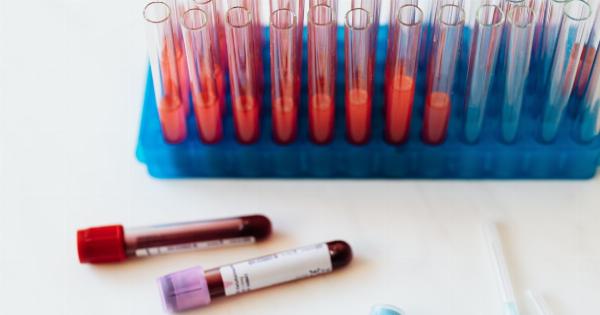Crisis situations, whether they are natural disasters, economic recessions, or public health emergencies, can have significant impacts on people’s physical and mental health. One area that is particularly affected is hypertension rates.
Hypertension, or high blood pressure, is a chronic condition that affects millions of people worldwide. In times of crisis, the stress and disruptions to daily life can exacerbate hypertension and lead to adverse health outcomes.
This article examines the effects of crisis on hypertension rates and discusses potential strategies for mitigating these impacts.
The Link between Stress and Hypertension
Before delving into the effects of crisis on hypertension, it’s important to understand the underlying connection between stress and high blood pressure.
Chronic stress triggers the body’s “fight-or-flight” response, leading to an increase in heart rate and blood pressure. When stress is prolonged or recurrent, these physiological changes can become chronic, contributing to the development of hypertension.
Therefore, any crisis situation that induces stress can potentially worsen blood pressure levels among individuals already living with hypertension and even increase the risk of developing the condition among those previously unaffected.
Natural Disasters and Hypertension Rates
Natural disasters such as hurricanes, earthquakes, and floods can cause immense physical and emotional upheaval.
The immediate aftermath of a disaster is characterized by chaos, destruction, and a loss of basic necessities like shelter, clean water, and food. These conditions can trigger significant stress and anxiety, leading to an increase in blood pressure levels.
Studies have shown that hypertensive individuals are particularly vulnerable to the effects of stress after a natural disaster, with a higher likelihood of experiencing increased blood pressure and cardiovascular events.
Moreover, the long-term consequences of natural disasters can also impact hypertension rates.
Displaced individuals often face prolonged periods of instability, living in temporary shelters or overcrowded conditions, which can lead to a lack of access to healthcare, limited dietary options, and reduced physical activity. The combination of these factors further contributes to the exacerbation of hypertension and the development of related complications.
Economic Crises and Hypertension Rates
Financial crises, such as economic recessions or market crashes, can have profound effects on individuals’ well-being.
Job losses, financial insecurity, and housing instability are common outcomes of economic crises, which significantly contribute to increased stress levels. Research has consistently shown a positive association between economic downturns and hypertension rates.
The stress of financial turmoil can lead to unhealthy coping mechanisms such as overeating, excessive alcohol consumption, and reduced physical activity. Poor diet, lack of exercise, and substance abuse are all known risk factors for hypertension.
Additionally, the economic strain may limit access to healthcare and medication for individuals with pre-existing hypertension, further worsening their condition.
Public Health Emergencies and Hypertension Rates
Public health emergencies, such as pandemics or outbreaks of infectious diseases, pose significant challenges to individuals and society as a whole.
The fear and uncertainty surrounding these events can trigger substantial stress and anxiety, contributing to the worsening of hypertensive individuals’ blood pressure control.
During a public health crisis, healthcare systems often become overwhelmed, resulting in reduced access to medical services.
Regular check-ups, medication refills, and preventive measures may be disrupted, making it difficult for hypertensive individuals to manage their condition effectively.
Additionally, the measures implemented to control the spread of infectious diseases, such as lockdowns and social distancing, can further contribute to stress, sedentary behaviors, and unhealthy lifestyle habits, all of which are detrimental to blood pressure control.
Strategies for Mitigating the Impacts
Efforts to mitigate the impacts of crisis situations on hypertension rates should focus on both individual and systemic interventions.
At an individual level, stress management techniques such as mindfulness meditation, deep breathing exercises, and regular physical activity can help reduce stress and blood pressure levels. Seeking social support and maintaining a healthy lifestyle, including a balanced diet and avoiding excessive alcohol and tobacco use, are also essential.
On a systemic level, it is crucial to ensure the continuous provision of healthcare services during crisis situations.
This includes implementing telemedicine solutions to support remote consultations and prescription refills, as well as ensuring the availability of essential medications. Public health campaigns should also emphasize the importance of blood pressure control and provide educational resources on healthy coping mechanisms during times of crisis.
Furthermore, addressing the underlying social determinants of health, such as poverty, unemployment, and housing instability, can contribute to long-term improvements in hypertension rates.
By creating supportive social and economic environments, individuals are better equipped to manage their hypertension effectively, even during periods of crisis.
Conclusion
Crisis situations have significant impacts on hypertension rates, exacerbating the condition and increasing the risk of developing hypertension among previously unaffected individuals.
The stress, disruptions to daily life, and reduced access to healthcare and healthy lifestyle options during crises contribute to these adverse effects. However, with appropriate individual and systemic strategies in place, the impacts of crisis-induced hypertension can be mitigated.
By addressing stress, providing continuous healthcare support, and tackling social determinants of health, it is possible to protect and improve the cardiovascular well-being of populations facing crisis situations.






























